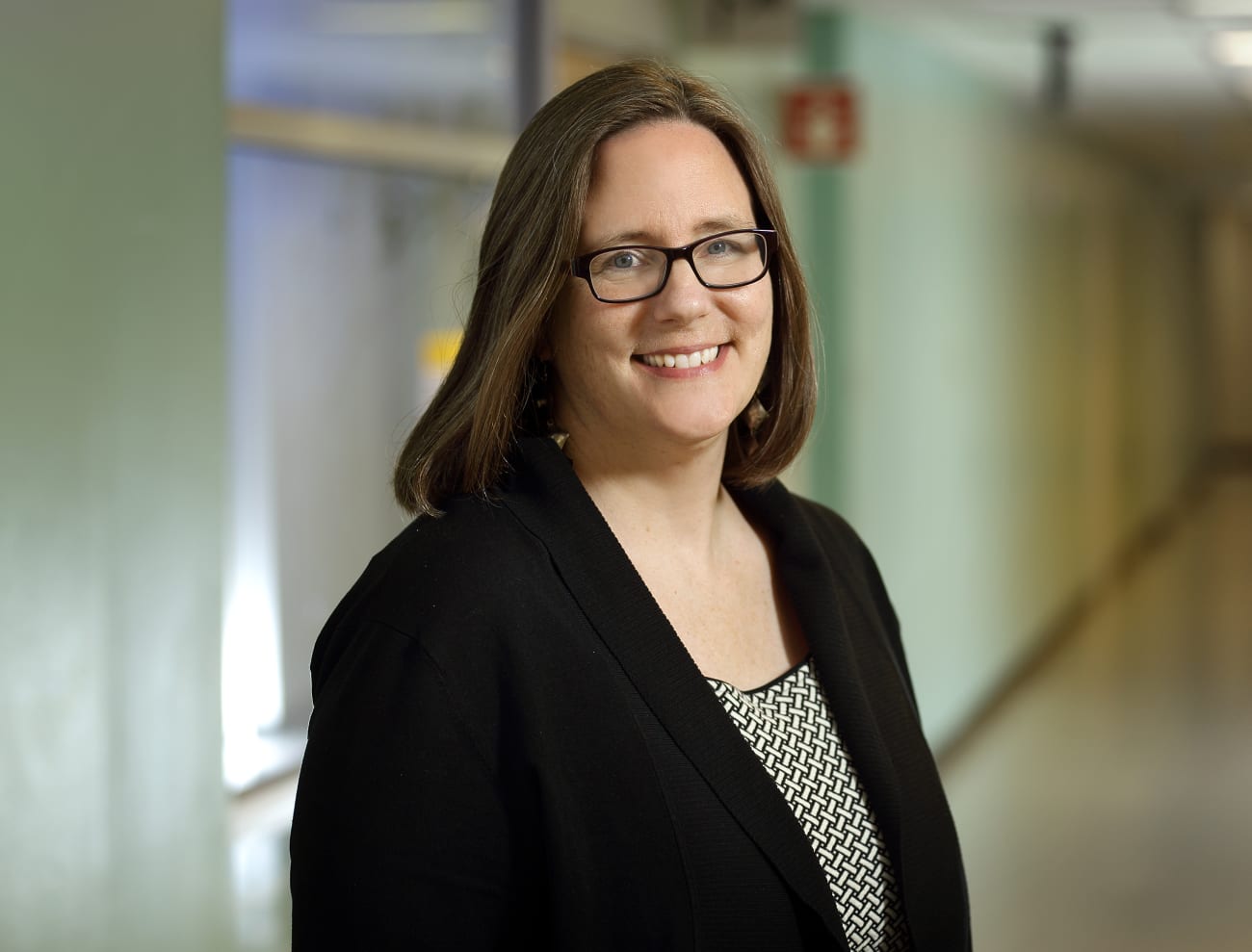Share Fast Facts
10%–15% of all new birth mothers suffer from postpartum depression symptoms. Learn how @HopkinsPsych experts are helping treat the disorder. Click to Tweet
If it were up to psychiatrist Lauren Osborne, postpartum anxiety would be as well known as postpartum depression (PPD). That’s because postpartum depression symptoms, which may affect 1 in 7 new mothers, are “complicated to define, and, in fact, anxiety is just as prevalent but less well studied,” says Osborne, director of the Johns Hopkins Center for Women’s Reproductive Mental Health. The postpartum state can intensify both types of symptoms, leading to debilitating effects. “Irritability and lack of sleep exacerbate symptoms,” she notes. “And, younger mothers appear to be more vulnerable to PPD than older ones.”
There’s reason for concern: 10%–15% of all new birth mothers suffer with PPD symptoms annually, “and some women also have depression in pregnancy,” says Osborne. Depression is the leading complication of childbirth. Left untreated, it can lead to severe consequences for both mother and child, including suicide and developmental problems for children. In addition to classic symptoms of depression, PPD can include severe anxiety, obsessions, guilt, self-blame and feeling overwhelmed. “For many women, giving birth during the pandemic has amplified those feelings,” says Osborne.
At the Center for Women’s Reproductive Mental Health, Osborne leads a team that conducts research into the causes of PPD — and provides the latest state-of-the-art treatment for the disorder. She works closely with researcher Zachary Kaminsky and psychiatrist Jennifer Payne who together study epigenetic patterns — marks on DNA — that affect how genes act in psychiatric disorders, and have identified certain epigenetic patterns that predict risk for PPD. The team also works on allopregnanolone, a hormone that is a breakdown product of progesterone; Osborne’s team has shown that low levels of this hormone early in pregnancy predict who will go on to develop PPD.
Watch epigenetic researcher Zachary Kaminsky in his lab describe his work to help predict PPD, suicide and other mental illnesses.
This last line of research is particularly pertinent to a new treatment the center is offering on Johns Hopkins inpatient units. The treatment uses the first drug ever approved by the FDA for PPD: brexanolone — a synthetic version of the hormone Osborne’s team studies. Brexanolone, an intravenous infusion, works quickly to modulate brain excitability. The drug had a 70% response rate in initial clinical trials, says Osborne, though it also had a high placebo response rate. At Johns Hopkins, “many of the women we’ve treated with the drug have responded well,” she notes.
To Osborne’s knowledge, the program has the added benefit of being the only one of its kind in the U.S. that offers the drug on a psychiatry unit, instead of a medical unit, so that patients are able to benefit from routine inpatient psychiatric care as well. Osborne hopes to collect patient outcomes data from this new program, and to eventually incorporate biomarker research to help predict markers of response.
“PPD can be a major problem during the first year after birth,” says Osborne. Women with multiples (twins or triplets) tend to suffer higher rates of depression, she adds. “It’s incredibly important to connect with these patients, especially because PPD affects the partner and children as well.”
While only a minority of women will be diagnosed with PPD, exhaustion following the birth of a baby remains a universal struggle (and can be linked to the development of PPD). In many other countries, says Osborne, care for the mother and extended family after a baby arrives is a priority: “The Australians have it down. They have family centers where parents who have newborns are given the space to sleep. We have a long way to go to reach that point.” But, Osborne is quick to add, staying attuned to — and ahead of — signs of PPD can prove transformative and lifesaving.
Learn more about The Johns Hopkins Center for Women’s Reproductive Mental Health at wmdcbaltimore.org.
Watch a video on Johns Hopkins researchers who study the biology behind mental illness during and after pregnancy and to treat postpartum depression.

